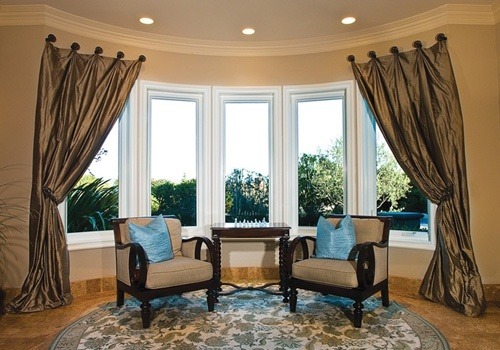MENU



If your air conditioning and heating bills are higher than you would like, your first thought may be to replace your HVAC system. But while updating your HVAC system can save you money on energy — particularly if your appliances are old and outdated — there is another way to drastically reduce your heating and cooling costs: replace your windows! Old, leaky windows are one of the most common sources of energy wastage in Michigan homes. Here’s a closer look at how new, energy efficient windows can help lower your HVAC costs, along with some tips for choosing the most efficient windows.
How Do Energy-Efficient Windows Lower HVAC Costs?
As windows age, they become less efficient in several ways. First, the sash material begins to warp as an effect of the years of exposure to temperatures changes and fluctuating moisture levels. As this occurs, the sash becomes looser in the frame, and gaps develop. The frame may also develop some rot, making matters worse. Air leaks through these new gaps. In the winter, this means a lot of your heated air will seep through the gaps. In the summer, it means warm air will seep inside. Your furnace or air conditioner will then have to work harder to keep up. New, energy-efficient windows are tightly sealed into the frame, so there are no air gaps to worry about.
Older windows are also simply less energy-efficient because they were made that way. Many only feature one pane of glass, rather than the two panes that are standard on today’s energy-efficient. Older windows also tended to feature plain glass, rather than the specialty coated glass that is made to reflect heat waves and conserve energy today.
With new, energy-efficient windows, a layer of air between the two panes of glass acts as an insulator, reducing heat transfer and therefore lowering your HVAC costs. Low-e glass, like Andersen’s SmartSun™ glass, reflects heat waves. In the cooler months, heat is reflected back inside, so your furnace does not have to turn on as often. In the summer, heat is reflected back outside, so your AC does not have to work as hard.
What Should You Look For In Energy-Efficient Windows?
First, make sure your windows carry the ENERGY STAR logo. This mean they have met the EPA’s standards for efficiency. Then, look for these specific features, which will help lower your heating and cooling costs.
Low-E Coating
As discussed above, low-e coating is highly effective for reducing energy costs. While SmartSun glass blocks harmful UV rays and heat rays, it does not block the visible sunlight, so your Michigan home still stays bright and sunny in the summer.
Composite Sashes
The materials from which your window sashes and frames are made also matters. Today, the best windows feature composite sashes. Fibrex® is Renewal by Andersen’s proprietary composite material. It is a better insulator than aluminum or vinyl, and it’s not as likely to warp — so your windows stay energy-efficient as they age.
Argon Gas
Look for windows that have argon gas between the dual glass panes, rather than plain air. Argon is a more effective insulator and will reduce your HVAC bills even further.
For energy-efficient windows that will lower your HVAC bills, contact Renewal by Andersen. We offer free, in-home consultations and can recommend the best windows for your Michigan home.